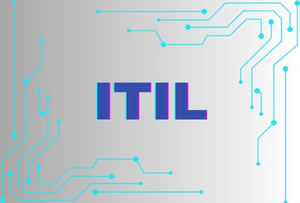Experion’s IMS solutions harness the power of data to resolve disruptions with accuracy and deliver tangible results.
Even the smallest disruption in IT services can have far-reaching consequences because businesses today rely heavily on technology for almost every operational aspect. From delayed operations to compromised data, incidents can impact a company’s productivity, reputation, and bottom line. That’s why having a well-defined incident management process is no longer a luxury but a necessity.
What is Incident Management Software?

Incident Management Software is a powerful tool designed to streamline and automate the lifecycle of IT incidents, from identification and categorization to resolution and documentation. Its core functionality centers on helping organizations maintain business continuity while providing insights to improve processes. By ensuring swift and structured handling of incidents, IMS minimizes downtime, improves service quality, and enhances overall operational efficiency.
It is a structured approach to identifying, prioritizing, resolving, and documenting disruptions in IT services. These disruptions, or incidents, can range from minor software glitches to critical system failures.
By enhancing communication and collaboration among teams, incident response software ensures faster resolutions and greater visibility into the progress of each incident. Its role extends beyond mere troubleshooting, offering organizations a proactive way to manage and prevent recurring issues. Let’s take a closer look.
Purpose of Incident Management Software:
- Accelerated Incident Response
IMS allows organizations to quickly detect and categorize incidents, ensuring priority is given to the most critical issues. Automated alerts and workflows reduce the time required to initiate responses, enabling faster resolutions. - Enhanced Collaboration
Seamless communication channels within IMS foster collaboration among cross-functional teams. Incident updates, task assignments, and resolution notes are centralized, reducing miscommunication and ensuring everyone stays informed. - Centralized Incident Tracking
IMS maintains a comprehensive log of all incidents, including their status, resolutions, and associated timelines. This centralized tracking helps organizations understand patterns, document learnings, and ensure compliance with industry standards. - Improved Problem Management
By identifying the root causes of recurring incidents, IMS supports proactive problem management. This feature reduces incident recurrence and enhances the stability of IT systems. - Enhanced Reporting and Analytics
IMS generates detailed reports and analytics, providing insights into incident trends, team performance, and system vulnerabilities. These reports help refine strategies, improve decision-making, and ensure transparency.
Custom Incident Management Software
While off-the-shelf solutions for incident management are widely available, custom incident management software offers unique advantages for organizations with specialized needs. Custom Incident Management Software ensures that the software aligns perfectly with the organization’s processes, providing a tailored solution for efficient incident handling.
Here’s how custom Incident Management Software stands out:
- Tailored Workflows
Custom Incident Management Software enables organizations to design workflows that align precisely with their processes and protocols. For instance, industries such as healthcare or manufacturing often require unique escalation paths or compliance-specific steps, which custom solutions can incorporate seamlessly. - Seamless Integrations
A custom solution allows for smooth integration with existing systems, such as incident response management software, ticketing systems, and communication tools. This unified environment eliminates silos, reduces manual effort, and creates a more efficient IT ecosystem. - Enhanced Security
Security incident management software benefits significantly from customization. Tailored Incident Management Software ensures advanced security features, such as role-based access controls, data encryption, and compliance with industry standards like GDPR or HIPAA, making it ideal for sensitive sectors like finance and healthcare. - Scalability
Unlike standard software, custom Incident Management Software grows with your organization. As incident volumes increase or business needs evolve, custom software adapts to accommodate changes, ensuring continued efficiency and reliability. - Flexibility
Features and functionalities can be fine-tuned to meet evolving requirements. Whether incorporating new automation tools or adjusting to changes in organizational structure, custom Incident Management Software provides unparalleled flexibility.
Benefits Across Industries
Different industries require tailored approaches to incident management. Here are a few examples of how customized IMS can make an impact:
- Safety Incident Management Software: Manufacturing and construction industries use custom IMS to handle workplace safety incidents, ensuring compliance with safety regulations and reducing risks.
- Healthcare Incident Management Software: Hospitals and clinics benefit from IMS by ensuring sensitive patient data is protected while maintaining rapid response to equipment failures or medical incidents.
- Best Incident Management Software: Organizations seeking a competitive edge rely on custom IMS to deliver optimized workflows and superior user experiences.
Why Choose Custom Incident Management Solutions?
Custom IMS stands out by blending functionality, security, and scalability into a solution specifically tailored to your organization’s unique needs. Unlike generic software, it adapts to your workflows, making it invaluable for handling diverse challenges across industries.
For example, imagine a hospital managing critical patient care. A power outage disrupts equipment connected to life-saving monitors. With a custom healthcare incident management system, the software immediately detects the issue, categorizes it as a high priority, and initiates an automated workflow. It alerts maintenance teams, provides step-by-step compliance protocols, and ensures patient data remains secure throughout the process.
Such customization ensures not only a swift resolution but also compliance with industry regulations like HIPAA, making it the ideal choice for sectors like healthcare, IT, or manufacturing. Whether it’s IT teams tackling server outages, industrial settings handling safety incidents, or medical institutions managing equipment failures, custom IMS provides the precision and adaptability needed to keep operations running smoothly.
Key Benefits of Incident Management Software

- Accelerated Incident Resolution
Efficient incident resolution is the cornerstone of operational stability. Incident Management Software ensures this through:- Automated Workflows
The software automates repetitive tasks, such as assigning incidents to the appropriate teams and initiating escalation protocols. This automation not only reduces manual intervention but also speeds up the entire resolution process. For instance, IT incidents that typically require multiple handoffs are swiftly routed, ensuring quicker recovery. - Rapid Notifications
Immediate alerts and notifications ensure that the right individuals or teams are informed as soon as an incident occurs. By integrating with communication tools like Slack or Microsoft Teams, the software reduces response delays, helping minimize the impact on operations.
- Improved Communication and Collaboration
Clear communication and effective collaboration are critical during incident management. Incident Management Software promotes this by:
- Centralized Platform
A centralized hub for incident data ensures that all team members and stakeholders have access to a single source of truth. This eliminates confusion caused by scattered information, improving coordination between IT, operations, and other teams. - Real-time Updates
The software provides instant updates about the status of incidents, their progress, and next steps. These updates keep all stakeholders in the loop, ensuring that decision-making is based on the latest information. For example, during a security breach, real-time updates enable rapid containment and resolution.
- Enhanced Incident Visibility
Visibility into incident trends and statuses is essential for proactive management. IMS excels in this area through:
- Real-time Dashboards
Dashboards display incident statuses, response times, and KPIs in a visually intuitive format. Managers can quickly assess the health of operations and identify bottlenecks or areas for improvement, enabling more informed decisions. - Advanced Analytics
The software uses advanced analytics to identify recurring incident patterns and root causes. These insights empower organizations to address underlying issues before they escalate, leading to fewer incidents over time. For instance, identifying a recurring hardware failure can prompt preventative maintenance, avoiding future disruptions.
- Reduced Operational Costs
Efficient incident management contributes directly to cost savings. IMS achieves this by:
- Minimized Downtime
Rapid resolution of incidents ensures that systems and services experience minimal interruptions. For businesses, this translates to reduced revenue loss due to service unavailability and fewer SLA penalties. - Optimized Resource Allocation
By automating tasks and improving visibility, the software helps allocate resources effectively. Teams focus on high-priority incidents, reducing wasted effort on minor or non-critical issues. This optimization lowers labor costs while enhancing productivity.
- Compliance and Audit Readiness
In regulated industries, maintaining compliance is non-negotiable. IMS simplifies this process with:
- Built-in Reporting
Pre-configured reporting tools generate detailed reports showcasing how incidents were handled, who was involved, and the timeline of actions taken. These reports ensure that organizations can demonstrate compliance with regulations such as GDPR, HIPAA, or ISO standards. - Audit Trail
A comprehensive audit trail records every activity associated with an incident, from the initial report to resolution. This detailed documentation not only supports audits but also enables organizations to analyze past incidents and refine their processes for better outcomes.
Features to Look for in Incident Management Software
When selecting Incident Management System Software, it’s important to focus on features that align with your organization’s needs and goals. Here are the key features to prioritize:
- Integration Capabilities
Effective IMS should integrate seamlessly with your existing systems to unify processes and centralize data.
- Seamless Integration
Look for software that integrates with tools like IT Service Management (ITSM), Customer Relationship Management (CRM), and Enterprise Resource Planning (ERP) systems. This integration reduces data silos, enabling smoother workflows and more cohesive incident handling. For example, linking IMS with ITSM can streamline ticketing processes, while CRM integration ensures customer-related incidents are tracked efficiently.
- Automation and AI
Automation and AI capabilities elevate the efficiency and accuracy of incident management.
- AI-Driven Incident Detection
Advanced IMS solutions employ AI to monitor systems continuously and detect potential incidents before they escalate. Predictive analytics can alert teams to issues, such as system overloads or security vulnerabilities, enabling proactive responses. - Intelligent Incident Categorization
Automating incident categorization based on predefined rules or machine learning algorithms saves time and ensures consistent prioritization. For instance, a security breach might be flagged as a high-priority incident, while routine maintenance issues are assigned lower priority. - AI-Powered Resolution Suggestions
AI tools analyze past incidents to recommend solutions or best practices, reducing resolution times and improving first-time fix rates. This feature is especially valuable for IT teams handling complex incidents.
- Scalability
Your IMS should be able to grow with your organization and adapt to increasing demands.
- Elastic Scaling
The software should handle fluctuations in incident volumes without compromising performance. Whether during peak operations or system outages, scalable IMS ensures seamless functionality. - Flexible Architecture
Choose a solution with an adaptable architecture that supports future growth and evolving requirements, such as adding new users or integrating additional tools.
- Customizable Workflows
Every organization has unique workflows, and your IMS should accommodate these variations.
- Flexible Workflows
The ability to design workflows that align with your organization’s specific incident management processes is crucial. Customization ensures that every step, from reporting to resolution, reflects your operational needs. - Drag-and-Drop Workflow Builder
A user-friendly builder allows non-technical users to create or modify workflows without coding expertise. This feature simplifies the process of adapting workflows to new challenges or regulatory requirements.
- Mobile Accessibility
With mobile accessibility, teams can manage incidents even when they are away from their desks.
- Mobile-Friendly Interface
A responsive, mobile-friendly design enables employees to access incident details, assign tasks, or log updates from their smartphones or tablets. This capability enhances flexibility and ensures uninterrupted incident resolution. - Real-Time Notifications
Timely alerts delivered to mobile devices keep teams informed about incident status changes or escalations. For instance, an IT manager can receive an alert about a system outage and initiate resolution steps immediately, even outside office hours.
The ITIL Framework for Resolving Major Incidents

The ITIL (Information Technology Infrastructure Library) framework provides a structured approach to resolving major incidents, ensuring minimal disruption to business operations. Here’s a breakdown of the key steps and how Incident Management Software (IMS) enhances each phase:
Incident Identification
The first step in managing an incident is recognizing it as a disruption to normal operations.
- Automated Detection
IMS employs advanced monitoring tools to continuously scan systems and identify anomalies or potential disruptions. Automated alerts ensure that incidents are flagged promptly, reducing the time between occurrence and recognition. For example, performance degradation in a critical application triggers real-time notifications to the IT team.
Incident Logging
Accurate logging of incident details is crucial for effective resolution and future reference.
- Centralized Logging
IMS provides a unified platform for recording all incident details, including time of occurrence, affected systems, and potential impact. This centralized repository ensures consistency, simplifies audits, and supports root cause analysis for recurring issues.
Incident Categorization
Classifying incidents based on their nature helps streamline the response process.
- AI-Powered Categorization
Advanced IMS solutions leverage artificial intelligence to categorize incidents automatically. By analyzing the incident’s attributes, such as error codes or affected systems, AI assigns it to predefined categories like hardware failure, software bug, or security breach. This automation improves accuracy and speeds up the triage process.
Incident Prioritization
Determining the severity and urgency of an incident ensures that critical issues receive immediate attention.
- Priority Assignment
IMS assigns priority levels to incidents based on criteria like business impact, SLAs, and the number of affected users. High-priority incidents, such as security breaches or critical system failures, are escalated immediately, ensuring resources are allocated efficiently.
Incident Response
The core of incident management is activating the right team, coordinating tasks, and working towards resolution.
- Timely Communication
IMS fosters real-time communication between team members, stakeholders, and end-users. Automated updates keep everyone informed, ensuring that all involved parties have visibility into the progress of resolution efforts. - Task Assignment and Tracking
Tasks are assigned to the most appropriate team members based on expertise and availability. IMS tracks these tasks in real time, providing a clear picture of what’s being done and who is responsible. - Resolution Tracking
IMS provides a step-by-step view of the resolution process, documenting updates, milestones, and resolution timelines. This transparency not only enhances accountability but also improves post-incident analysis and reporting.
Designed to adapt, Experion’s IMS solutions improve resolution rates while proactively preventing future disruptions.
How Incident Management Software Improves Business Continuity
Incident Management Software (IMS) plays a pivotal role in ensuring business continuity by addressing disruptions promptly and efficiently. Here’s how IMS contributes to maintaining seamless operations:
- Minimizing Service Disruptions and Downtime
Unexpected downtime can result in financial losses and reduced customer satisfaction. IMS mitigates these risks by:
- Proactive Monitoring
Advanced IMS tools continuously monitor systems, detecting potential issues before they escalate into critical incidents. Early detection helps teams resolve issues quickly, reducing downtime. - Automated Workflows
IMS automates incident resolution workflows, ensuring that repetitive tasks like logging and categorization are completed swiftly. This automation accelerates the resolution process, minimizing service interruptions.
- Ensuring Customer Satisfaction and Trust Through Rapid Incident Response
Timely responses to incidents are critical for maintaining customer trust. IMS enhances response efficiency by:
- Real-Time Notifications
IMS sends instant alerts to relevant teams, ensuring that incidents are addressed without delay. These notifications reduce response times and keep customers informed about service status. - Improved Communication
With centralized incident information and real-time updates, IMS ensures transparent communication between IT teams and customers. This clarity helps build trust and demonstrates a commitment to resolving issues effectively.
- Enhancing IT Resilience and Infrastructure Stability
A resilient IT infrastructure is key to preventing and mitigating incidents. IMS strengthens resilience through:
- Advanced Analytics
IMS provides insights into incident trends and root causes, enabling organizations to implement preventive measures. For instance, recurring hardware failures can be addressed by upgrading systems or replacing faulty components. - Scalability and Flexibility
IMS adapts to growing business demands, ensuring that increasing incident volumes don’t overwhelm the IT team. Scalable systems maintain performance even during high-demand periods, ensuring infrastructure stability.
The Business Continuity Edge

By reducing downtime, ensuring rapid responses, and bolstering IT resilience, Incident Management Software empowers organizations to maintain uninterrupted operations. This not only safeguards revenue but also strengthens customer trust, positioning businesses for long-term success.
Incident Management Software (IMS) shines as a versatile tool, designed to adapt to the unique demands of various industries. From ensuring seamless operations to safeguarding critical processes, here’s how IMS supports different sectors:
IT and Technology
Streamlining IT outages and system recovery- Minimizing Downtime: With proactive monitoring, IMS quickly detects and addresses system failures, ensuring business continuity.
- Automated Escalation: Critical issues are automatically routed to the right teams, accelerating resolution times.
- Seamless Integration: IMS works with existing IT tools to create a cohesive system for managing outages and maintaining performance.
Healthcare
Prioritizing patient safety and operational efficiency- Quick Incident Reporting: IMS simplifies the logging and tracking of incidents such as equipment malfunctions or medical errors.
- Compliance Made Easy: Built-in features support adherence to standards like HIPAA, keeping patient data secure and audit-ready.
- Timely Coordination: Real-time notifications enable staff to act swiftly, ensuring that care delivery remains uninterrupted.
Finance
Protecting sensitive data and maintaining trust- Robust Security Management: IMS handles the detection and resolution of security breaches, protecting financial transactions and customer data.
- Swift Incident Response: Automated workflows ensure disruptions are resolved quickly, minimizing client impact.
- Regulatory Assurance: Detailed reports and audit trails support compliance with stringent financial regulations.
Manufacturing
Keeping production lines moving and employees safe- Real-Time Equipment Monitoring: IMS integrates with IoT systems to flag potential issues before they escalate into downtime.
- Optimized Workflows: Customizable processes help resolve production challenges faster, maximizing efficiency.
- Enhanced Safety Oversight: From tracking workplace incidents to ensuring regulatory compliance, IMS promotes a safer work environment.
Tailored Solutions for Every Industry
No matter the sector, Incident Management Software is the backbone of effective operations. By addressing industry-specific challenges with precision and adaptability, IMS empowers businesses to stay resilient, productive, and prepared for the unexpected. Whether safeguarding patient care, protecting financial systems, or keeping assembly lines running smoothly, IMS ensures every challenge is met with confidence and efficiency.
Future Trends in Incident Management Software

The field of Incident Management Software (IMS) is evolving rapidly, driven by advancements in technology and shifting business needs. Here’s a look at the key trends shaping its future:
- The Growing Role of AI and Machine Learning in Predictive Incident Management
- AI and machine learning are revolutionizing how incidents are detected and managed. Predictive analytics enable IMS to identify potential issues before they occur, reducing downtime and minimizing disruptions.
- Machine learning algorithms continuously learn from past incidents to provide more accurate categorization, prioritization, and resolution suggestions.
- The Importance of Cybersecurity in Incident Management
- With the rise of cyber threats, cybersecurity has become a critical component of IMS. Modern IMS tools focus on real-time detection and management of security breaches to safeguard sensitive data.
- Features like automated threat analysis and secure audit trails help organizations maintain compliance with data protection regulations.
- Emerging Technologies Like IoT and Their Influence on Incident Tracking and Resolution
- The integration of IoT devices into IMS provides real-time monitoring of equipment and systems, enabling faster detection of anomalies.
- IoT-driven IMS solutions can automatically trigger resolution workflows, ensuring a seamless and efficient response to incidents in industries like manufacturing and logistics.
Selecting Incident Management Software for Your Business
Choosing the right IMS can significantly impact your organization’s efficiency and resilience. Factors to consider for helping you make the right choice:
- Business Size and Industry Requirements
- Assess whether the IMS aligns with the unique needs of your industry, such as compliance standards in healthcare or rapid response capabilities in IT.
- Ensure the software is scalable to accommodate your organization’s growth and evolving requirements.
- Budget and ROI
- Evaluate the cost of the software against its potential benefits, such as reduced downtime, improved efficiency, and better customer satisfaction.
- Look for solutions that offer flexible pricing plans to match your budget.
- Vendor Reputation and Customer Support
- Research the vendor’s track record and read customer reviews to ensure reliability and quality.
- Choose a provider that offers excellent customer support, including training, troubleshooting, and regular updates.
- Top Questions to Ask Vendors
- What integration capabilities does the software offer?
- Does the IMS include features for AI-driven automation or predictive analytics?
- How secure is the system, and does it comply with industry standards?
- What customization options are available to suit your business needs?
Conclusion
As technology drives nearly every aspect of business operations, efficiently addressing IT disruptions has become a critical necessity. Incident Management Software (IMS) empowers organizations to turn potential crises into manageable events, minimizing downtime, enhancing collaboration, and safeguarding operational continuity. Whether through off-the-shelf solutions or customized IMS tailored to specific industry needs, businesses can streamline processes, strengthen resilience, and gain invaluable insights to improve over time. At Experion, we specialize in crafting innovative, scalable, and secure incident management solutions that help organizations stay ahead of disruptions and achieve breakthroughs in technology. With the right tools and strategies in place, businesses can transform challenges into opportunities, ensuring stability and success in an ever-evolving digital landscape.
- Automated Workflows

